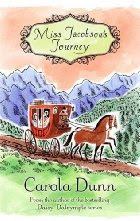Pound Cake
The Creamed:
- 8 oz. (2 sticks) unsalted butter, softened
- 397 g/14 oz/ 2 c. sugar
The Eggs:
- 3 large eggs, beaten
- 1 tsp vanilla extract
The Dry Goods:
- 411 g/14.5 oz/3 c. all-purpose flour
- 1/2 tsp. baking soda
- 1/2 tsp. salt
The Liquid:
- 227 g/8 oz/1 c. buttermilk
You'll note that the breakdown and listing of ingredients above is non-standard. Brown strongly advises measuring by weight rather than volume, though he includes the standard measures for those who've yet to invest in a good digital kitchen scale. (He lists the weights for the eggs, baking soda, vanilla, etc., but I decided to just include the usual measurements because, well, because that's how I made it. I weighed my sugar, flour, and buttermilk, though.)
He also divides the recipes in this book, which focuses on baking, by mixing method. This one was in the Creaming Method section, and since the recipe just tells you to follow it, I'll include it here for anyone who wants to try it out.
The Creaming Method:
1. Scale or measure all ingredients. Fats should be pliable but solid (no sign of melting). If kitchen temp is over 70 F, chill the mixing bowl.
2. Combine all Dry Goods (except sugar) by pulsing in food processor.
3. In a small bowl, beat eggs together, along with any extracts.
4. Using a stand mixer with the paddle attachment, on medium speed:
- Mix the fat(s) alone for a minute to spread them around the bowl.
- Add sugar(s) slowly and beat until mixture lightens noticeably in texture and increases slightly in volume.
5. Reduce the speed to "stir" and add the eggs very slowly, stopping to scrape down the sides of the bowl as necessary.
6. Work in the Dry Goods in three installments alternating with any additional liquids, such as milk. Always start with the dry ingredients and finish with the wet for a smoother batter.
7. Stir in any bits and/or pieces (chocolate chips, nuts, etc.).
8. Bake according to the recipe's instructions.
And here are the specific instructions for this week's recipe:
Place an oven rack in the center of the oven and preheat the oven to 325 F.
Prep a tube or Bundt pan (i.e. spray with Baker's Joy) and set aside.
Assemble the batter via the Creaming Method, alternating additions of the Dry Goods with the Liquid.
Pour the batter into the pan and bake for 1 hour, or until the cake pulls away from the sides of the pan and the internal temperature hits 212 F.
Remove from the oven and allow to cool 15 minutes in the pan, then turn out onto a rack to cool thoroughly. Tightly wrapped at room temp, the cake will keep for 1 week.
This is the most delicious cake I've ever baked in my life, and probably tied with the time I made bourbon chocolate chip pecan pie for tastiest dessert I've produced. It's simple but perfect--buttery, moist, and just sweet enough.




